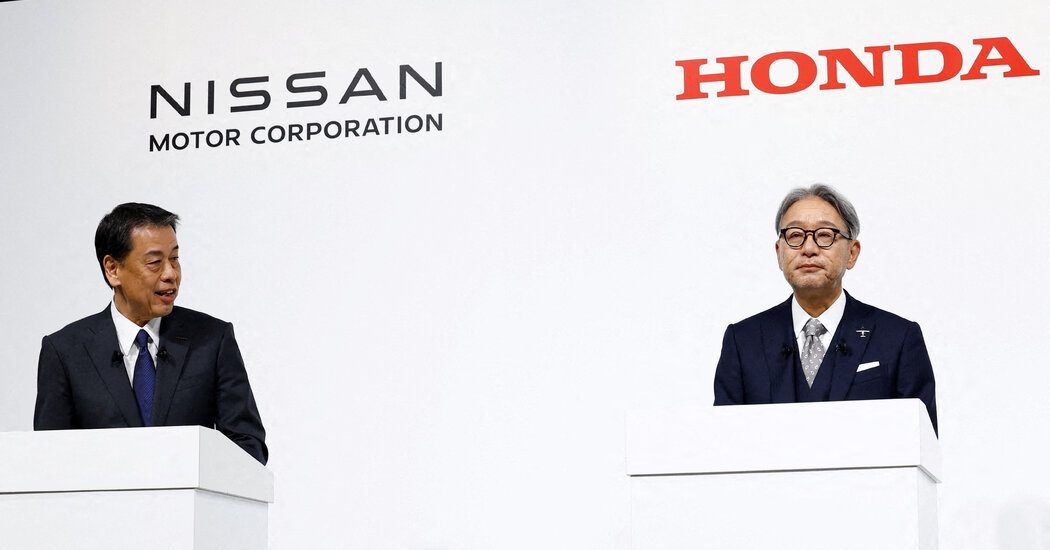

A proposed $50 billion merger between Honda Motor and Nissan Motor, aimed at forming one of the largest automotive groups globally, has been officially abandoned.
In December, the second and third largest car manufacturers in Japan announced their intentions to explore a partnership to streamline operations, share expenses, and collaborate on the development of next-generation vehicles. However, both companies confirmed on Thursday that they had decided to discontinue talks.
This unexpected decision reflects a broader trend within the automotive industry, where there is increasing recognition that large-scale alliances may not effectively address the rapid technological advancements that the sector is currently facing.
Traditional automakers in Japan, the United States, and Europe are finding themselves challenged by emerging competitors like Tesla and China’s BYD, which have gained considerable ground in electric vehicles and innovations in semi-autonomous driving technologies.
Lucinda Guthrie, head of Mergermarket, emphasized that merging two automotive behemoths was merely a regression to familiar strategies, rather than a proactive approach to adaptation. As the industry evolves towards vehicles that function more like “robots on wheels,” companies must embrace change rather than revert to traditional methods.
Despite calling off the merger, Honda and Nissan will continue their collaboration in areas such as software development and electrification. Nonetheless, partnerships in the automotive sector have frequently struggled to yield results in the face of technological advancements.
For instance, Ford Motor and Volkswagen formed a partnership a few years ago to address electric vehicles and autonomous driving. Ultimately, their self-driving initiative was discontinued, and their collaboration on electric vehicles has not produced significant outcomes.
Honda previously collaborated with General Motors and currently markets two electric SUVs, the Honda Prologue and Acura ZDX, produced by GM. However, in 2023, both companies decided not to extend their partnership beyond these models.
From the onset of talks with Nissan, Honda’s top management encountered internal resistance regarding a potential merger. Nissan was undergoing restructuring in light of substantial profit declines, which raised concerns for Honda’s executives about Nissan’s financial stability and the prospective advantages of a merger.
Honda proposed a definitive plan to have Nissan operate as its subsidiary, but Nissan chose to reject this offer, as it deviated from initial concepts of establishing a holding company where both brands could coexist as subsidiaries. Nissan’s leadership believed that Honda’s proposal did not accurately represent the company’s value.
According to Ms. Guthrie from Mergermarket, Nissan might benefit from seeking new partners, potentially venturing beyond traditional automotive alliances. She pointed out that the challenges both Nissan and Honda face would remain unchanged even with a merger, stressing the importance of adapting to the future instead of sticking to familiar practices. “Maybe the breakup will be what it takes,” she concluded.
Foxconn, the Taiwanese electronics giant, has emerged as a potential partner for Nissan. Young Liu, Foxconn’s chairman, mentioned on Wednesday that while the company would consider acquiring a stake in Nissan, they would prefer to establish a partnership with the automaker instead.








